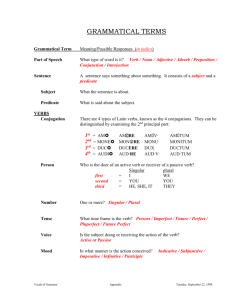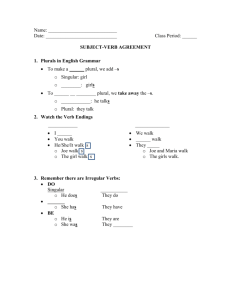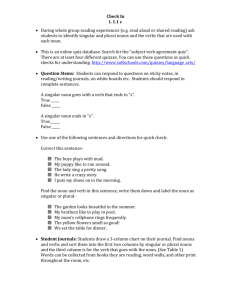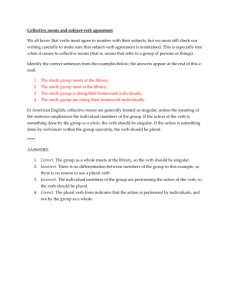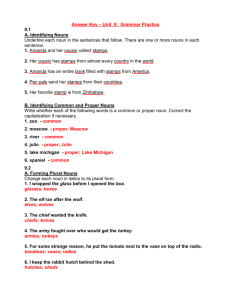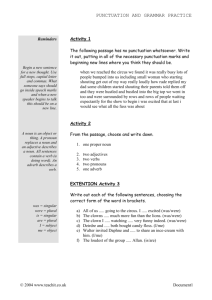SUBJECT-VERB AGREEMENT A verb must agree with its subject in
advertisement
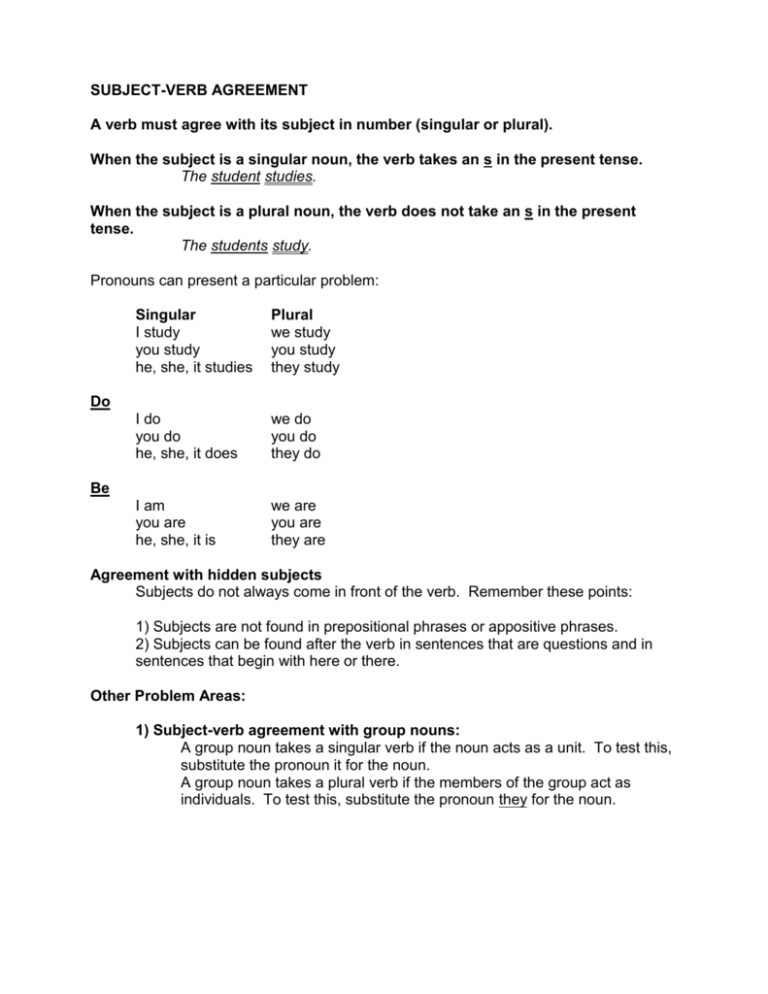
SUBJECT-VERB AGREEMENT A verb must agree with its subject in number (singular or plural). When the subject is a singular noun, the verb takes an s in the present tense. The student studies. When the subject is a plural noun, the verb does not take an s in the present tense. The students study. Pronouns can present a particular problem: Singular I study you study he, she, it studies Plural we study you study they study I do you do he, she, it does we do you do they do I am you are he, she, it is we are you are they are Do Be Agreement with hidden subjects Subjects do not always come in front of the verb. Remember these points: 1) Subjects are not found in prepositional phrases or appositive phrases. 2) Subjects can be found after the verb in sentences that are questions and in sentences that begin with here or there. Other Problem Areas: 1) Subject-verb agreement with group nouns: A group noun takes a singular verb if the noun acts as a unit. To test this, substitute the pronoun it for the noun. A group noun takes a plural verb if the members of the group act as individuals. To test this, substitute the pronoun they for the noun. 2) Indefinite pronouns: There are three kinds of indefinite pronouns: always singular, always plural, and sometimes singular/sometimes plural. The singular ones are everyone, everybody, everything, each, someone, somebody, something, another, anyone, anybody, anything, either, no one, nobody, nothing, neither. The plural ones are both, few, many, several. The singular/plural ones are any, all, most, more, none, some. Everyone is expecting a miracle. Both were to blame. The books are gone. All were very popular. The sugar is gone. All of it was spilled. 3) Compound subjects If the conjunction used to connect the compound subjects is and, the verb is usually plural. Mary and Steve are my good friends. The exception to this is if the subjects are considered one unit: Peanut butter and jelly is my favorite sandwich. If the conjunction used to connect the compound subjects is or, nor, either, either/or, neither, neither/nor, not only/but also, you need to be particularly careful. Use the subject closer to the verb to make agreement. Mary or Steve is going to help me. My friends or my two brothers are going to help me. My friends or my brother is going to help me. My brother or my friends are going to help me. 4) Unusual Nouns Don’t assume that every noun that ends in s is plural, or that all nouns that do not end in s are singular. There are some exceptions. Here are some of the most common. Singular, but end in s: mathematics diabetes United States economics measles Kansas Irregular plural form (not s): people feet children mice Always plural nouns: clothes headquarters men women scissors tweezers data alumni fireworks pants


